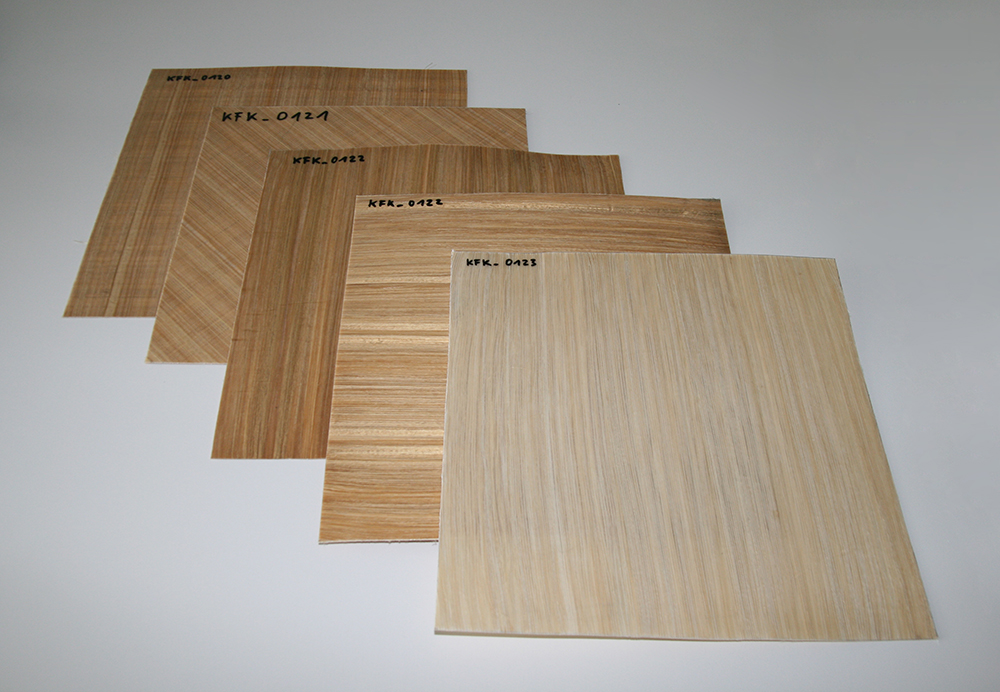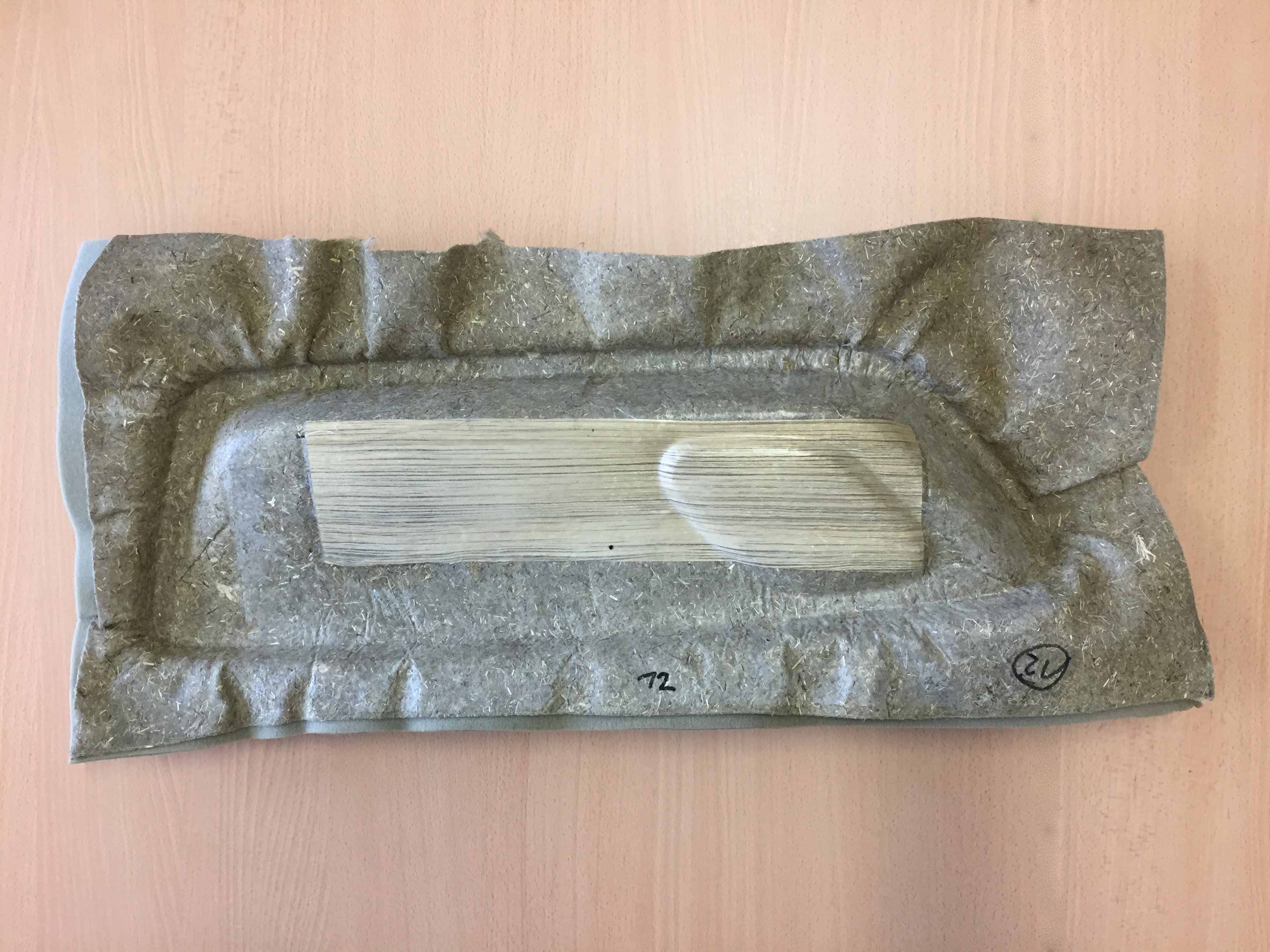Fraunhofer IMWS develops bio-based fiber plastics for lightweight application
Cars should be lighter and thus more environmentally friendly. An important approach here is to replace metallic components with fiber-plastic composites with the same stability. A team from the Fraunhofer Institute for Microstructure of Materials and Systems IMWS in Halle (Saale) has developed, together with partners, endless fiber-reinforced plastic composites, which not only have very good lightweight properties but also have even been produced on the basis of renewable raw materials.


Fiber plastic composites are ideal materials for lightweight construction, as they have high strength and rigidity with low density at the same time; they also have good damping properties and are very resistant to corrosion and weathering.
In a joint research project with BYK Chemie GmbH from Wesel in North-Rhine Westphalia and GK Concept GmbH in Dresden, bio-based continuous fiber-reinforced semi-finished products were developed at the Fraunhofer IMWS. These semi-finished products, so-called UD tapes, consist of parallel-superimposed continuous fibers and a poly-lactic acid based thermoplastic matrix, which embeds the fibers so that an endless fiber reinforced film is formed. Superimposing and thermally pressing several film layers generates high-performance plates. When these are further processed, the fiber orientation in the component can be adapted directly to the load profile in a later application.
The project at the Fraunhofer IMWS specifically aimed at reducing crude-oil based materials using bio-based alternatives based on renewable raw materials for both plastic as well as fiber development work.
The researchers developed a polymer blend that is 70 per cent bio-based. It consists of polypropylene and poly-lactic acid, which can be synthesized from sugar cane and corn.
In a second stage of development, the project team used these blends to create bio-based UD tapes. In a film impregnation process, non-directionally aligned regenerated cellulose fibers were combined with the developed plastic film to form UD tapes so that very stable laminates could be pressed. The result: With weight savings in the automobile interior of up to 20 per cent and at the same time a performance increase, for example, with the flexural strength being more than 90 per cent compared to conventionally used bio-based material systems, these can be used very well as a basis for targeted structural lightweight construction.
»We connected the high-quality, bio-based fiber to a largely biogenic thermoplastic matrix and thus obtained a material with very good mechanical performance, such as bending and tensile properties. These tendencies in our development work are very promising for sustainable lightweight construction,« says Ivonne Jahn, head of the group »fiber composite semi-finished products based on thermoplastics« at the Fraunhofer IMWS. In collaboration with GKC GmbH, they and their colleagues at the Fraunhofer Pilot Plant Center for Polymer Synthesis and Processing PAZ in Schkopau used hybrid injection molding and pressing methods to produce various sample pilot components, such as an armrest demonstrator.
The work on technology and material development has created the basis for later use of these biopolymer-based composite materials in the automobile construction industry. Ivonne Jahn foresees manifold possible used for bio-UD tapes: »The better our laminates become, the more economically specialized components can be manufactured for car interiors at a later industrial scale, for example. The innovative and advanced processes available at the pilot plant centre together with the new material combinations increase the potential for future lightweight construction, as bio-based composite materials are indispensable for new application generations.«
The results of this research project will be presented in the »Schaufenster Bioökonomie« (A window into bio-economy) at the Hannover Fair from April 23 to 27 (Hall 2, Stand B30).